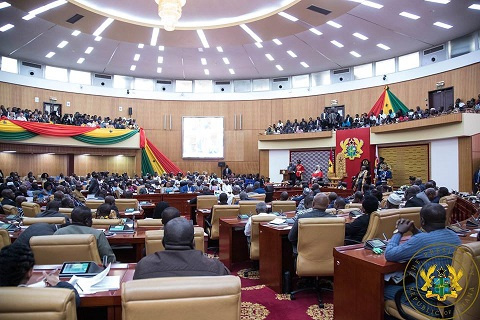
The Imposition of Restrictions Bill, 2020 has finally been passed into an Act by Parliament after long hours of heated debate.
What is now left is for the President to assent to the Act to take effect.
The Bill empowers the President legally to impose restrictions to persons in times of public emergencies like the Coronavirus pandemic for purposes of public safety and protection.
Several amendments were made to the Bill to take care of a sanctions regime, the duration of restrictions and the introduction of the word, Coronavirus before being passed into an Act.
The Attorney General, Gloria Akufo who moved the motion for the Third Reading of the Bill at a sitting on Friday told Members why the Bill was so broad in its nature.
“The emphasis is creating a piece of legislation that will deal not only with the risk that our country has been exposed to presently but also in the future,” she said.
A memorandum accompanying the Bill states that its purpose is to provide for powers to impose restrictions on persons in the event of a disaster, emergency or similar circumstances, to ensure public safety and protection.
It further states that due the circumstances the country finds itself in, it is important for the Government to develop a legal framework to provide generally for expeditious interventions by the Government in the event of unforeseeable emergencies.
“The Bill is therefore intended to provide a legislative framework in consonance with the Constitution, for the imposition of restrictions, as a quick and effective means of intervention to address emergencies”, the memorandum in part read.
The Bill, the memorandum adds, recognises the general fundamental freedoms guaranteed under Article 21 of the Constitution, but also takes cognisance of the fact that the exercise of the right to the general fundamental freedoms guaranteed under the Constitution is subject to laws that are reasonably required, among others, in the interest of public safety and public health as provided for in paragraphs (c), (d) and (e) of clause (4) of Article 21 of the Constitution.
Position of the Minority
The Chairman of the Subsidiary Legislation Committee, Dominic Shine, had argued that the Bill in it’s initial form gave so much power to the President, and therefore, recommended some amendments to the Bill.
Confusion
At some point, the House was stuck in giving true meaning and interpretation to Article 106(13) and had to rely on the Majority Leader, Hon. Osei Kyei-Mensah-Bonsu and the 2nd Deputy Speaker, Hon. Albany Sumana Kingsford Bagbin, the two most experienced law makers as well some others for a bailout.



